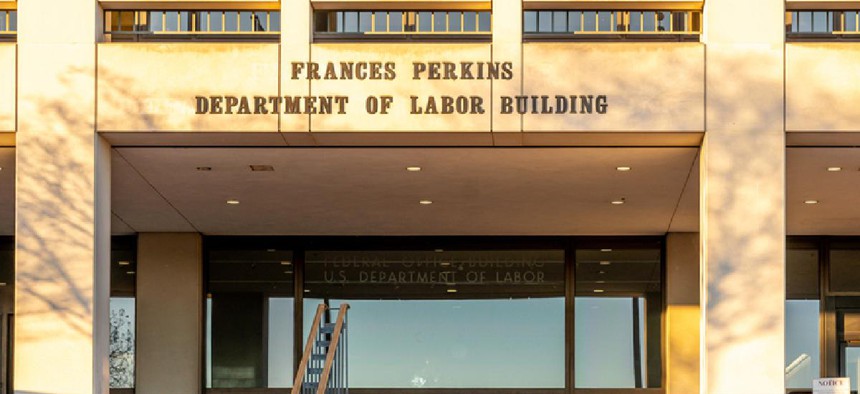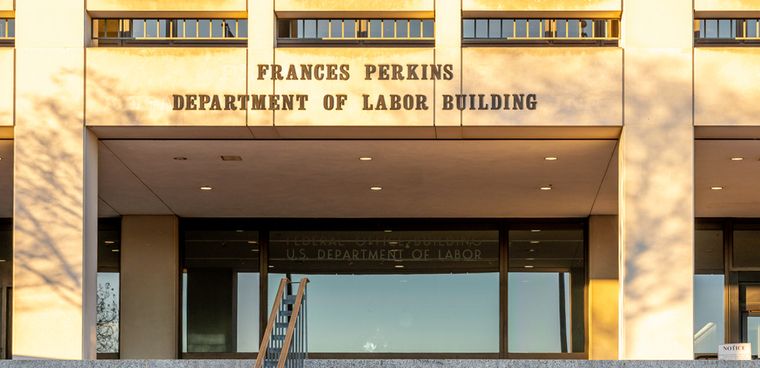Labor Dept. official says religious exemption for some contractors won't allow discrimination

Civil rights groups caution that the rule change that allows faith-based organizations that are also federal contractors to favor their members in hiring could lead to employment discrimination.

A Labor Department official defended a rule change that exempts some religious organizations from anti-discrimination policies when executing federal contracts, saying the rule won't allow religious organizations to discriminate on the basis of other protected statuses like sexual orientation, disability status or race.
"I'm strongly against discrimination based on LGBTQ-plus status," said Craig Leen, the head of the Office of Federal Contract Compliance Programs (OFCCP), said at a Jan. 12 event hosted by the Federalist Society.
"Our mission is to ensure nondiscrimination based on all protected classes," Leen said.
Civil rights groups opposed the rule change, which makes allows nonprofit and for profit religious entities to seek out employees from their own faith and exclude others from employment.
"By creating confusion about our nondiscrimination laws and by encouraging entities with a desire to discriminate to seek out federal contracts, the intentions of this administration to enable discrimination are clear," said Lindsey Kaley, a staff attorney at the American Civil Liberties Union.
House Speaker Nancy Pelosi (D-Calif.) condemned the rule when it was finalized in December, and called on the incoming Biden-Harris administration to reverse the new rule, along with other Trump administration workforce policies.
The new rule was meant to clarify an existing exemption policy that was too vague, Leen said.
"The goal of the religious exception directive was to more fully include religious organizations in federal contracting," he said. "We have received feedback that a lot of religious organizations were not getting involved in contracting because they felt like they would be discriminated against by the agency based on their religious affiliation."
Leen said that the exemption still doesn't authorize discrimination against any of the other protected classes. If an exemption were to touch on a protected status, "we're going to be very concerned about that and looking at it closely," he said.
Exemptions will occur after a review by the solicitor's office, which will have to do analyses based on the Religious Freedom Restoration Act to determine if the law necessitates an exemption, he said.
"I understand it's controversial, and I respect the different opinions on the rule," he said. The goal was to allow religious organizations to fully participate while simultaneously enforcing OFCCP's protections for other protected statuses.
Sarah Warbelow, the legal director for the Human Rights Campaign, an LGBTQ advocacy group, warned that the new rule allows religious organizations to ensure that their employees adhere to the an organization's religious tenets.
That essentially means that organizations can ask employees "to live and act as though they were a member of our faith," Warbelow said. "This becomes a serious problem for LGBTQ people."
Problems could materialize in various ways, Warbelow said. For example, an employee could be terminated after coming out as an LGBTQ person or discriminated against in the provision of benefits, such as not giving a trans person time off to pursue transition-related care, Warbelow said.
The rule has a special caveat specifying the exemption does not allow discrimination on the basis of race, even if it would allegedly be on religious grounds. The fact that that was included, but a similar caveat for other protected statuses like gender and sexual orientation was not, is concerning, Warbelow said.
NEXT STORY: Dunne: Schedule consolidation is paying off



